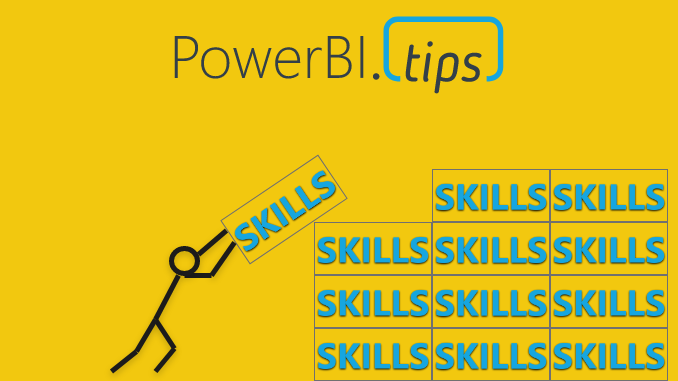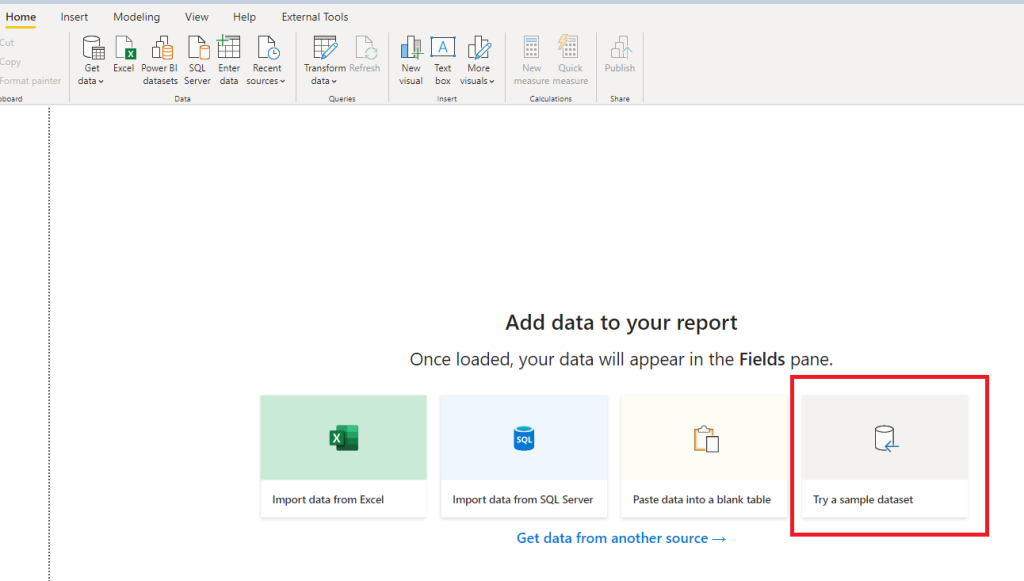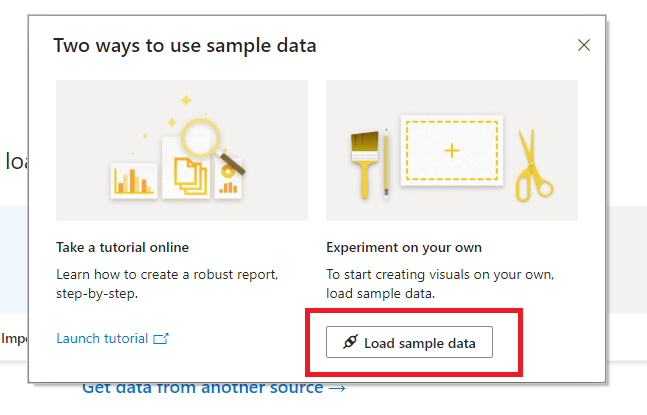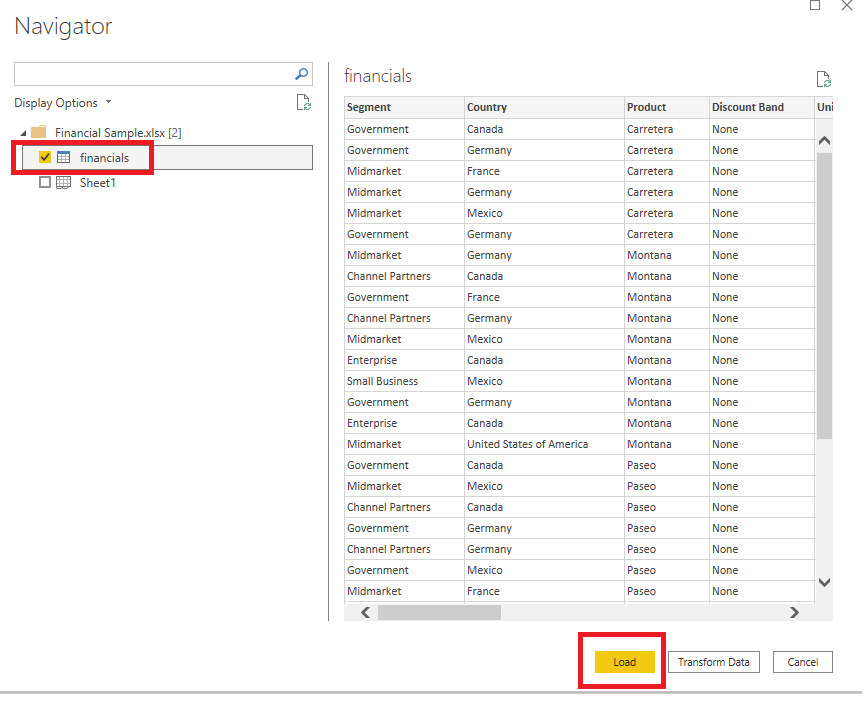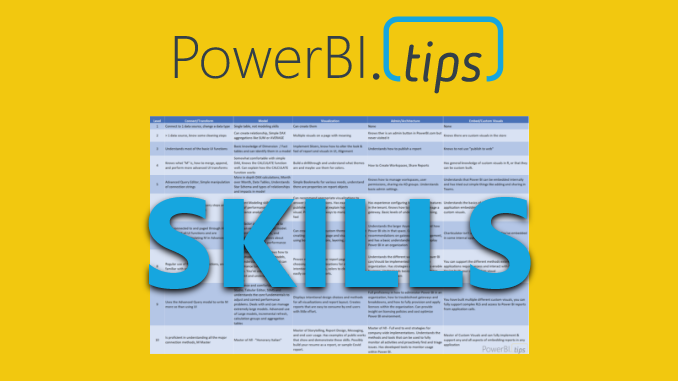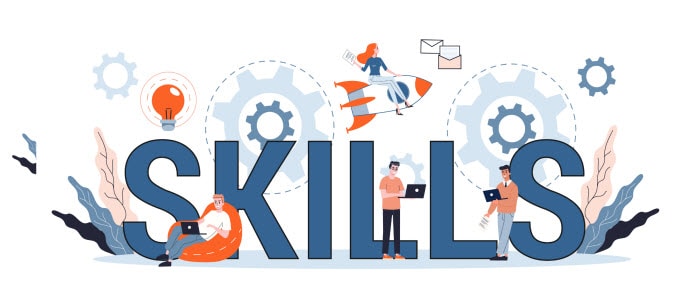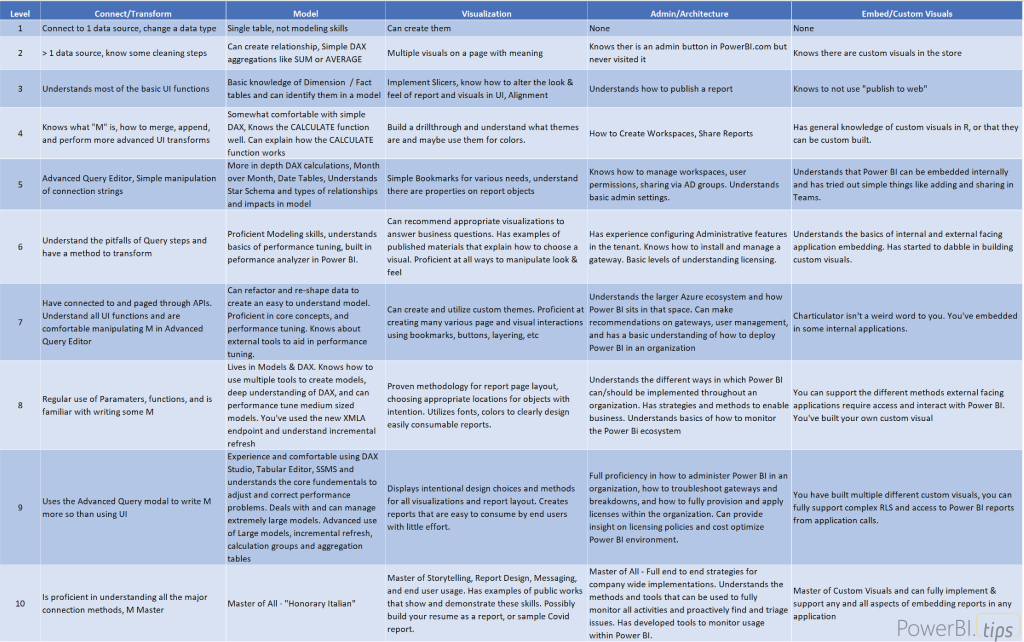This is part 3 of 3 in a series designed to help Power BI users and enthusiasts. The first post focuses on identifying the dizzying array of skills that make up the Power BI ecosystem. It was created to help you take a personal inventory and assess your current skills. The Second post focuses on providing ideas for building learning plans and putting that base assessment to use. Finally, we come to this post where I’m going to focus on some key areas for how you represent your skills when the time comes. This post is for job seekers, for career movers and anyone else that finds themselves in a position where you need to represent your Power BI skills effectively.
Be Distinctive
All of us are unique. You have so many different qualities and passions, and your experiential knowledge is one of a kind. The many years it’s taken you to get to this point, the schooling, the challenges you’ve had to overcome, the boss that made your life miserable, the aha moments, and big successes are all part of who you are. There is SO much there…and you have a piece of paper, and possibly 30 to 60 minutes to convey that in an interview. How do you do that?
The simple answer is, you don’t. You do all that before the interview. You take those experiences. Take those challenges you’ve overcome. You embrace getting outside your comfort zone. You assess your skills, you set a plan of action, and you grow. It is through that commitment to action that you will grow in an area you are passionate about or hold interest in. The old adage, show me who you are by your actions is what sets you apart and will increase your chances of landing your next big job. If you are different, be different first.

Learning and growing will show well by themselves based on the answers you give. However, you can easily take this to the next level by showing what you’ve done. Build some reports and share the public links in your resume, start a git repository and store your stuff there. You can also add links to Community activities or blogs. As someone who hires people, I know this is the first thing I look for. This gives you an advantage because you show who you are before we even talk.
You are One in a Sea of Resumes
Regardless of the position being looked for, the reality is that you are a single candidate in a sea of resumes. I’m not a recruiter or human resources people finder. I’m don’t know all the different techniques you can use to make sure your resume pops up on someone’s screen. Here is what I can tell you based on experience looking at hundreds of resumes over the years. Firstly, there are certainly key words related to tech skills that I look for in order to find candidates. This should make sense. If I need a Power BI developer, I’ll be looking for Power BI in your resume. However, that just gets me to your resume, it doesn’t sell me.
Is your resume going to stand out? Not in a bizarre way, but have you really thought about how to convey your skills without writing 6 pages? Here are my top recommendations for increasing your chances of going from resume to interview.
Top Recommendations
- Stack rank your skills. It should be abundantly clear somewhere what you are the best at and what you only have limited exposure too.
- Don’t put every single program, operating system and application you have ever opened on your resume.
- Condense your experience down to the most concise wording. You are putting your experience down to convey your knowledge not describe all your job functions in detail.
- Have you blogged? Do you have a community user account where you are actively helping people? Are there any published reports of yours to look at? Do you have anything to show that you are different?
- Do you have an ending that outlines what you are currently learning?
It requires effort to be distinctive. Adopt a learning mentality and let that shine and set you apart in your resume.
One of the best resumes I’ve seen had a link to encourage me to look at a Power BI report. The candidate built this to represent their skills. It was the longest I’ve ever spent looking at a resume. It showed the candidates skills, technique and understanding of how to put together a well polished report. They followed that resume with a solid interview where the technical skills in the resume aligned with the conversation. Instant hire!
Do Not Embellish!
A counter point has to be made right after pushing you to think about how to set yourself apart. I am not suggesting you embellish. One of the absolute worst things you can do is mis-represent yourself on your resume. Land an interview, and then display that you actually don’t have any of the experience that you said you had. Writing it down doesn’t make it reality. I love rating scales, its one way you can easily articulate your technical skills on a resume.
A business will have different needs, and it isn’t everything. For instance, you might know nothing about Power Query because you work in enterprise areas for data movement and shaping. However, you do have a ton of Modeling/DAX. That could be a perfect fit for an enterprise or more technical role. The converse is that a business unit may only need simple Modeling/DAX because all their issues revolve around connecting to, cleaning, and shaping data in Power BI. Those are two completely different skill paths.
Why Not Embellish a Little?

One of the challenges we’ve identified already is trying to convey who you are in a short amount of time. If there are huge differences between the way your resume conveys your technical skills and the way you can represent them in conversation you just took Trust off the table. And that will likely kill your chances of getting hired. All that work to get this far will get instantly flushed.
Another reason is that you may not know about all the other areas of need a company has. Just because you may not be a good fit for this role, the hiring person may pass your resume around to other parts of the organization. You may have the skillset that a colleague of theirs is looking for.
Understand the skills the position needs
Was the job description specific? Did it give you an idea of what skills were needed? Could you figure out whether the job was going to be business facing or more of a development role? If you said no to any of these questions, be sure you bring that up right away in the interview. Clarity around the type of position is really important to understand where the focus of questions should fall.
Pay attention to the details in the job description and focus on the areas where an organization is placing emphasis. If you don’t have skills in Power Query and the job description stresses that as a main area of expertise, you might want to pass on applying. This goes back to not embellishing. Just because you have focused a lot of your time in Power BI doesn’t mean that you would be able to perform all areas as an expert. The level of job, the requirements they are asking for and the years of experience are good indicators of whether or not it is the “right” Power BI job for you.
Be Honest
This is without a doubt the number one make or break thing for you in an interview. Just like embellishing, this will instantly kill your chances of getting a job if you aren’t honest. What do I mean by this? Here is an example that you might not think would qualify, but it does.
Question: We’re in need of someone with really good Power Query skills. Are you familiar with Power Query and have you processed data through it on a regular basis?
Answer: Yes, I know Power Query very well.
Follow up: Great! How can I transform the data type of a column?
Answer: Well, actually… I’ve read about Power Query but I do all my transforms in SQL…
At this point its likely you just flipped the switch. An interview is so much more than just the technical things you know. The interviewer has a limited amount of time to get to know you, and even in a technical interview they are looking for all the key things that they would want to see in a team member. Examples like this erode, or destroy, the trust/honesty element. Right or wrong, an interviewer will take this information and apply it to other scenarios.
What answers like this represent is there won’t be an open dialogue, and a manager could have a new resource committing that they know everything. This would likely lead to over committing or missing deadlines. Either one is a recipe for conflict and a bad relationship. Be honest when you represent your Power BI skills.
Be Inquisitive

There is nothing better than having a dialogue with individuals around topics. As mentioned above, hiring managers are looking for a lot more than just what you can recite. Are you asking clarifying questions? Do you follow up with a question of your own, or talk through your thought process? Did you come prepared with questions on the company? Did you inquire about the team, and the direction that the company is headed. What is the work style, do they work under heavy process and procedure or is it the wild west. What does a day in the life of this job look like for you? All the questions you bring to an interview, show the interviewer that you have a vested interest in the company and the team you would be working on.
Be Yourself
The resume opens the door. The interview is the initial meet and greet, and any follow up meetings would be closing the deal. You wouldn’t have the interview if you didn’t appear to have the skills that a company needs. For all intents and purposes you should feel pretty comfortable, provided you have the skills you represented in your resume.
Bring your personality to the interview, engage as much as you can with the interviewer to let them see the side of you that you would show at work. This is important for a couple reasons. First, you want to show the interviewer a glimpse of the type of person you are. Without that, it can be hard to gauge whether or not you would fit with the team or wouldn’t. The other thing to keep in mind here is that you are interviewing the company, just as much as they are interviewing you! Show a bit of yourself in the interview to make sure that the company is one that you would want to join and you think you could be successful in.
Extend Thanks, Request feedback
Wherever possible, follow up with the recruiter or interviewer to extend thanks for their time. Hopefully it was an enjoyable experience for all involved regardless of whether or not it worked out. Extending thanks to people for engaging with you should have gone both ways, but you’ll never lose when extending a bit of closing goodwill. Wherever or whenever possible, if you don’t get the job, request feedback. Knowing the reasons is invaluable to you in your next interview or the job you apply for.
Do you lack certain skills, did you convey something that you didn’t mean to convey, was there a candidate stronger in a particular area. There is a huge disparity sometimes between how someone reads us vs. what we are trying to show. Getting this type of feedback is constructive because it leads to introspection and tweaking how you present yourself or a skill area you need for that particular job role. Other times, there could be no skill difference but a different candidate presented themselves in such a way to make the interviewer feel it was a better team fit.
Representing your Power BI Skills
There are so many roles and jobs that you can apply for now. There are also one’s you can focus on for future goals after you learn more skills, and build more experience. While I can’t make any guarantees, I can say that these tips and recommendations come from interviewing many Power BI candidates. These steps outlined above are key areas that will make your job hunting, your interviews, and your future interactions with your next career move a more positive one.
This wraps up the 3 part series that I wanted to complete to bring my insights and experience to all of you. This last post was the first one I wanted to write, but I couldn’t bring this forward without the first two. If you missed those, be sure to go check them out (Skills, Learning). This is the last stop, understanding your skills and adopting a learning mindset should be your first focus. Those set the stage for being successful personally, in an interview, or anywhere your career may take you.
If you like the content from PowerBI.Tips, please follow us on all the social outlets to stay up to date on all the latest features and free tutorials. Subscribe to our YouTube Channel, and follow us on Twitter where we will post all the announcements for new tutorials and content. Alternatively, you can catch us on LinkedIn (Seth) LinkedIn (Mike) where we will post all the announcements for new tutorials and content.
As always, you’ll find the coolest PowerBI.tips SWAG in our store. Check out all the fun PowerBI.tips clothing and products:

